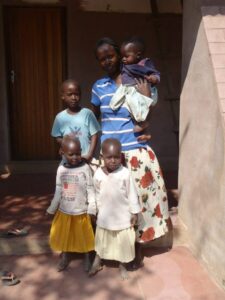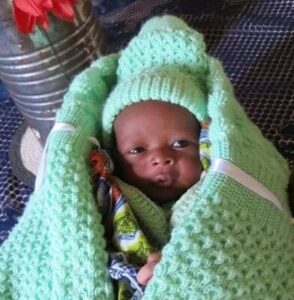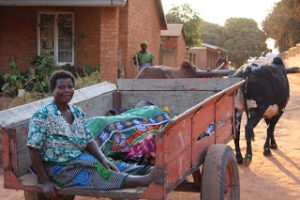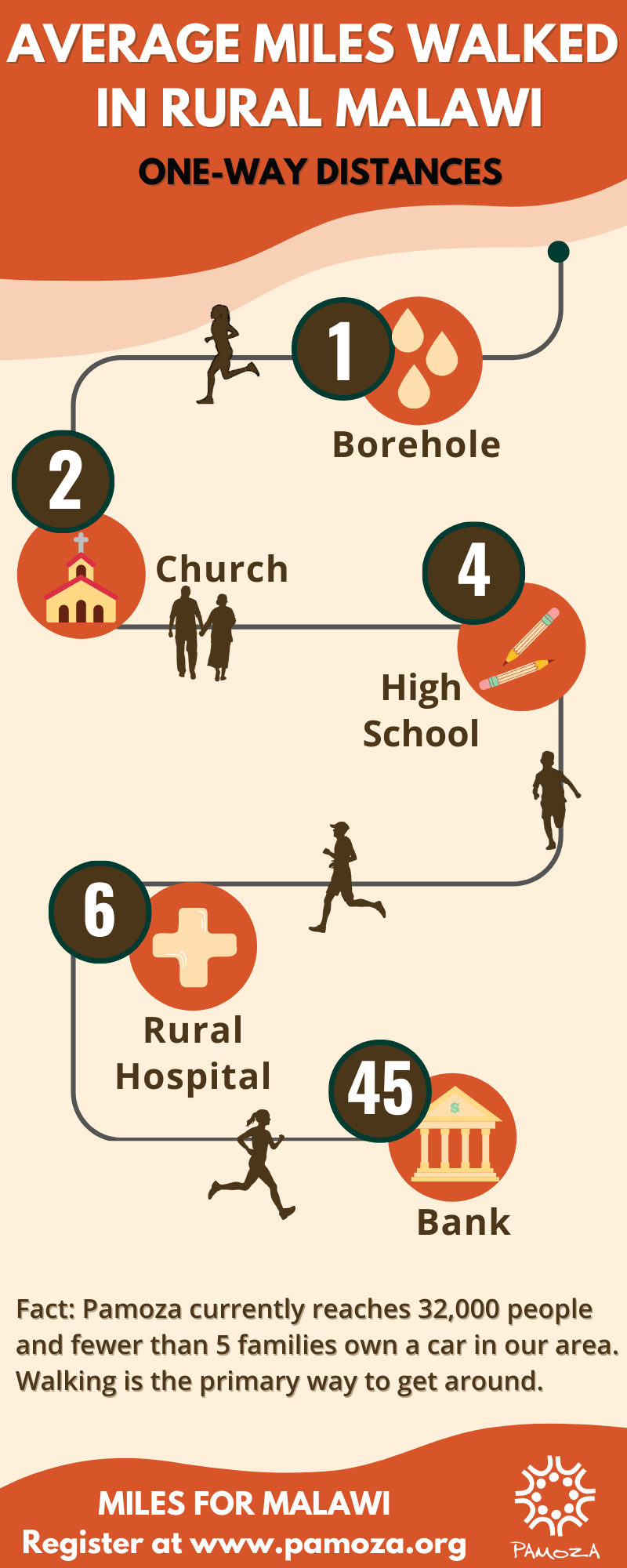
 Junior, pictured on the right, was in a hurry to be born. The time was past midnight. His mother Elteck, who already had three children, started experiencing labor pains. She did what most mothers in rural Malawi do – she looked for transportation to the nearest hospital which was 6 miles away!
Junior, pictured on the right, was in a hurry to be born. The time was past midnight. His mother Elteck, who already had three children, started experiencing labor pains. She did what most mothers in rural Malawi do – she looked for transportation to the nearest hospital which was 6 miles away!
“I was in labor and having trouble walking. I had no way to get to the hospital.”
Elteck had three options: walk, find someone with a bike, or find an ox-cart. The ox-cart was the most feasible option but there were none available.
Fortunately, Dr. Mike Mtika, Pamoza’s founder, was in Zowe and he had a car.
So Elteck, 9 months pregnant and escorted by her mother-in-law and two other women, walked 1.5 miles to Dr. Mtika’s house and banged on the windows. In the nick of time, Dr. Mtika was able to take Elteck to the hospital, and Junior was born safely.

When Elteck was pregnant with her first child, she was able to find an ox-cart to transport her to the hospital. Ox-carts (like the one pictured here) are a popular mode of transportation for those who are ill and need hospital care. They are certainly not as fast as ambulances, but there is no 9-1-1 system in rural Malawi, and there are no ambulances to come to the rescue.
During Elteck’s second pregnancy, she was expecting twins. She wanted to avoid having her babies at home, so she went to the hospital a few days before her due date and waited there until she went into labor.
Elteck knows of a woman in her village who was pregnant and headed to the hospital on the back of someone’s bicycle but didn’t make it; she had her baby on the way. The reality is that many women in critical need of maternity services are unable to access them due to transportation limitations.
Pamoza has come a long way to bring health services closer to home. We need to; of the 32,000 people in Pamoza’s area, fewer than 5 families own a car of their own. We started by constructing Zowe Clinic in 2007, where we ran weekly clinics with local health care workers we borrowed from the nearest hospital. Then we convinced Malawi’s Ministry of Health to assign and pay for a Health Surveillance Assistant to provide care for children under five and to offer community health trainings. Three years ago, we started providing prenatal services to pregnant women in our area in collaboration with a local rural hospital. Most recently (in 2019), we hired a registered nurse to serve as our Health and Nutrition Coordinator. She has taken our work to a whole new level.
But our efforts to bring services closer to home go far beyond health care services. Because people in rural Malawi have to constantly walk to access the most basic necessities such as water or firewood, we continue to create initiatives that will save Malawians time that could be better spent on other tasks.
You can do something about the distances people in rural Malawi have to walk to access basic necessities. Help us bring more services closer to home. Register for our Miles for Malawi virtual 5K, support a runner or walker who is already registered, or donate to the Pamoza program of your choice.
